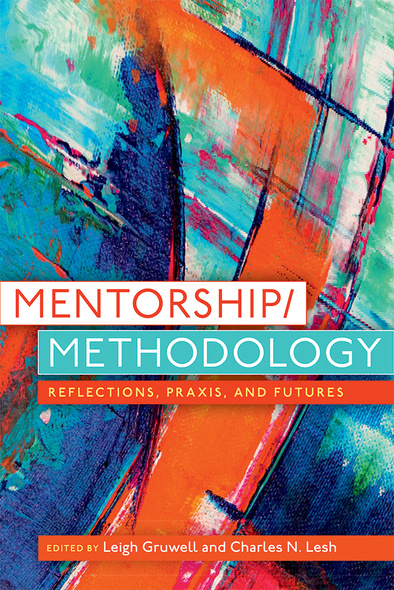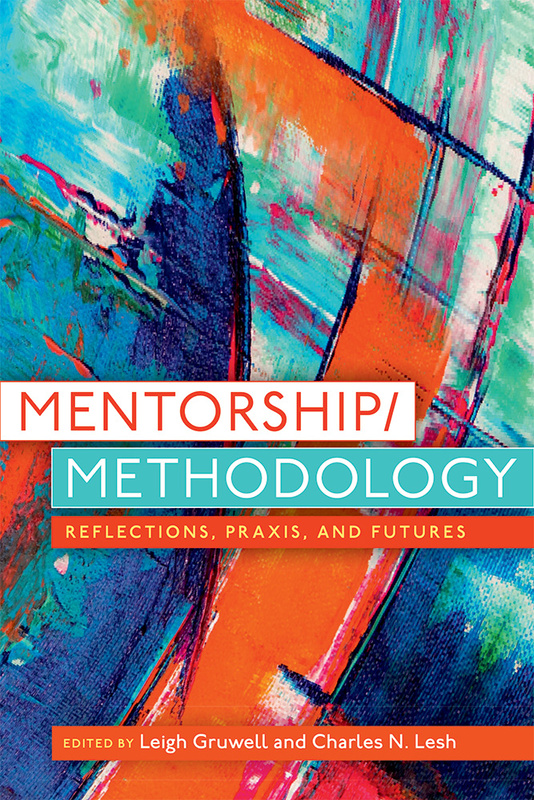Our shopping cart is currently down. To place an order, please contact our distributor, UTP Distribution, directly at utpbooks@utpress.utoronto.ca.

304 pages, 6 x 9
1
Paperback
Release Date:22 Apr 2024
ISBN:9781646425815
Hardcover
Release Date:22 Apr 2024
ISBN:9781646425808
Mentorship/Methodology
Reflections, Praxis, and Futures
Edited by Leigh Gruwell and Charles Lesh
Utah State University Press
Mentorship/Methodology brings together emerging and established scholars to consider the relationship between mentoring practices and research methodologies in writing studies and related fields. Each essay in this edited collection produces a new intellectual space from which to theorize the dynamics of combining mentoring and research in institutions and communities of higher education.
The contributors consider how methodology informs mentorship, how mentorship activates methodology, and how to locate the future of the field in these moments of intersection. Mentorship, through the research and relationships it nourishes, creates the future of writing studies—or, conversely, reproduces the past. At the juncture where this happens, the contributors inquire, Where have current arrangements of mentorship/methodology taken writing studies? Where do these points of intersection exist in performance and practice, in theory, in research? What images of the field do they produce? How can scholars better articulate and write about these moments or spaces in which mentorship and methodology collide in productive disciplinary work?
By making the “slash” more visible, Mentorship/Methodology provides significant opportunities to support and cultivate diverse ways of knowing and being in rhetoric and composition, both locally and globally. The volume will appeal to students and scholars of rhetoric, composition, and technical and professional communication, as well as readers interested in conversations about mentorship and methodology.
The contributors consider how methodology informs mentorship, how mentorship activates methodology, and how to locate the future of the field in these moments of intersection. Mentorship, through the research and relationships it nourishes, creates the future of writing studies—or, conversely, reproduces the past. At the juncture where this happens, the contributors inquire, Where have current arrangements of mentorship/methodology taken writing studies? Where do these points of intersection exist in performance and practice, in theory, in research? What images of the field do they produce? How can scholars better articulate and write about these moments or spaces in which mentorship and methodology collide in productive disciplinary work?
By making the “slash” more visible, Mentorship/Methodology provides significant opportunities to support and cultivate diverse ways of knowing and being in rhetoric and composition, both locally and globally. The volume will appeal to students and scholars of rhetoric, composition, and technical and professional communication, as well as readers interested in conversations about mentorship and methodology.
‘This is a valuable contribution to writing studies that builds on mentorship and methodology research in the field.’
—Laura Gonzales, University of Florida
‘An important contribution to our understanding of research methodologies and mentoring practices.’
—Michelle Eble, East Carolina University
Leigh Gruwell is associate professor of English at Auburn University, where she teaches undergraduate and graduate courses in writing and rhetoric. Her research centers on digital, feminist, and new materialist rhetorics as well as composition pedagogy and research methodologies. She is the author of Making Matters: Craft, Ethics, and New Materialist Rhetorics.
Charles N. Lesh is associate professor of English at Auburn University, where he regularly researches and teaches community and public writing, subculture, space and place, and rhetorical theory. He is the author of The Writing of Where: Graffiti and the Production of Writing Spaces.
Charles N. Lesh is associate professor of English at Auburn University, where he regularly researches and teaches community and public writing, subculture, space and place, and rhetorical theory. He is the author of The Writing of Where: Graffiti and the Production of Writing Spaces.




